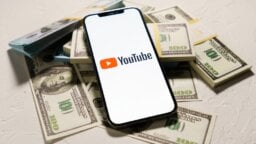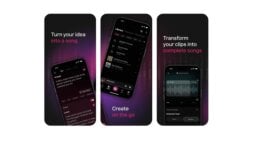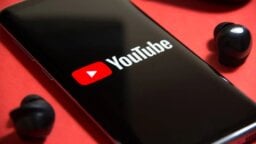Starting next month, music rightsholders and creators will be able to receive a revenue share from advertisements on YouTube Shorts.
YouTube parent Alphabet disclosed the roll-out in a recent update to Google’s Support page.
The change, which takes effect on February 1, comes nearly three months after Alphabet CEO Sundar Pichai hinted during an earnings call that the company is continuing to build out monetization on YouTube Shorts.
“We are sharpening our focus on a clear set of product and business priorities,” Pichai told analysts in late October, disclosing plans to monetize YouTube Shorts, “which will support the creator ecosystem”.
YouTube Shorts is Alphabet’s answer to TikTok. It became available in the US in March 2021 after launching in beta in India in the second half of 2020 at a time when TikTok gained popularity when the COVID-19 pandemic kept most people at home.
And to attract more creators, YouTube launched a $100 million fund in May 2021, just two months after Shorts’ US launch. The Shorts Fund paid out content creators over the course of 2021-2022.
Creators who received the most engagement and views on Shorts were rewarded from the fund.
Shorts’ revenue-sharing model replaces the YouTube Shorts Fund, the platform says. Creators will no longer earn money with the Shorts Fund as YouTube says the new model will allow recipients to earn more.
Alphabet’s move follows that of Meta, which announced about half a year ago that it will start paying artists and music rightsholders revenue from the use of their songs in user-generated video content on Facebook.
Under Meta’s model, video creators who choose to use licensed music in videos over 60 seconds long on Facebook will receive a 20% share of any ad revenue generated by their creation. Facebook will split the other 80% of that revenue between music rightsholders and Meta.
Alphabet and Meta’s efforts come amid growing calls for popular video-sharing platforms, particularly TikTok, to pay record companies a share of revenue generated on its platform.
Instead of a revenue-share model, TikTok employs a ‘buy-out’ model with rightsholders where the platform, owned by China’s ByteDance, pays a lump sum to license music for a set period instead of sharing the ad revenue generated from the use of artists’ or labels’ copyrighted tracks.
It’s worth noting, that alongside the arrival of revenue share models at tech giants such as Meta and Youtube Shorts, the industry is also facing a downturn in online ad spending, which could weigh on the amount of revenue that the platforms could share to rightsholders and creators.
In Q3 2022 for example, YouTube’s ad revenue fell 1.9% YoY to $7.07 billion, missing market expectations.
Under the new model, YouTube will split the revenue from views on Shorts between the Creator Pool and music partners based on the number of tracks used.
The “music” eligible for a revenue share includes actual music audio or tracks, music videos, or other music content such as artist interviews.
If a creator uploads a Short with one track, half of the revenue from the views will be allocated to the Creator Pool, while the other half will cover the costs of music licensing, YouTube explains.
For Shorts featuring two songs, one-third of the revenue from views will be allocated to the Creator Pool and the other two-thirds will be used to cover music licensing costs.
“By pooling revenue and then distributing it based on share of views, we aim to reward all monetizing creators who make up the Shorts experience, not just those who have an ad next to their video.”
YouTube
In explaining why Shorts ad revenue is being pooled, YouTube says: “By pooling revenue and then distributing it based on share of views, we aim to reward all monetizing creators who make up the Shorts experience, not just those who have an ad next to their video.”
But regardless of whether music was used or not, monetizing creators get to keep 45% of their allocated revenue.
YouTube noted that non-original Shorts such as unedited clips from movies or TV shows, reuploading other creators’ content from YouTube or other platforms, or artificial or fake views of Shorts from scroll bots will not be eligible for the ad-sharing model.
Creators’ ad revenue from the Shorts Feed will be displayed daily along with other performance metrics on YouTube Analytics, effective February 1.
Music Business Worldwide




